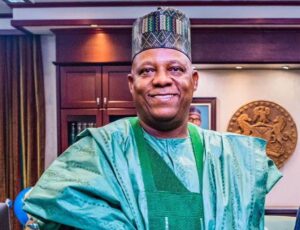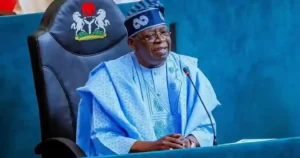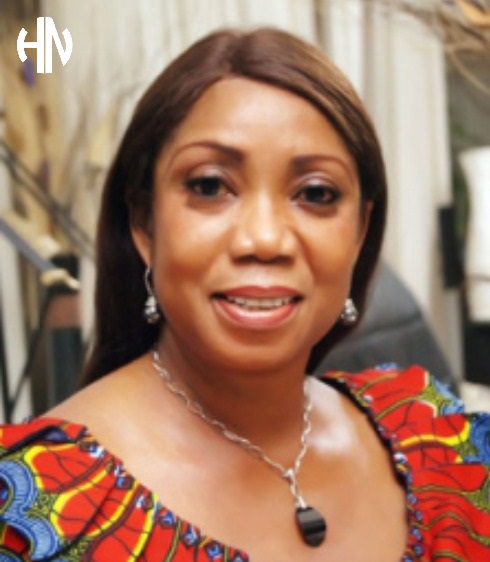New York / Abuja — In the United Nations General Assembly’s 80th session, Vice President Kashim Shettima represented Nigeria with poise, clarity, and strategic messaging. His national statement, delivered on behalf of President Bola Ahmed Tinubu, covered key issues—climate action, economic diversification, multilateralism—and underscored Nigeria’s global priorities under the Renewed Hope Blueprint. While Tinubu’s absence at UNGA has stirred discussion, Shettima’s performance both alleviated concerns and opened new conversations about presidential presence in global forums.

Shettima’s Statement: Key Themes & Highlights
Based on reporting from Daily Times Nigeria and other outlets:
Climate Commitments: Shettima issued updated Nationally Determined Contributions (NDCs) under the Paris Agreement, pledging stronger renewable energy expansion and improved adaptation programmes for vulnerable communities. These are especially significant given Nigeria’s exposure to flooding, desertification, and climate change-driven disasters.
Economic Growth & Recovery: The speech emphasized economic diversification, stressing agriculture, solid minerals, technology, and financial inclusion as pillars to reduce dependence on oil.
Peace, Security & Leadership: Nigeria reaffirmed its role in African peacekeeping, highlighted regional security threats, and called for cooperation in tackling terrorism, irregular migration, and other transnational challenges.
Global Partnerships & Multilateralism: Shettima urged stronger global cooperation – especially in climate financing, debt relief, and trade reform. These themes are familiar but crucial, as many developing nations still struggle with external debt burdens and limited access to green technology.

President Tinubu’s Absence: What It Means
This is not the first time President Tinubu has delegated the UNGA speech to his Vice President—he also skipped UNGA 79, citing domestic priorities.
Potential Downsides
Perception of disengagement: Repeated absence at UNGA may feed criticisms that Nigeria’s leadership is sidestepping global visibility at critical junctures. Critics argue that seeing the President in person can lead to higher diplomatic weight.
Symbolic loss of prestige: The President’s direct participation often symbolizes Nigeria’s seriousness on global issues. Missing in person twice in a row may be seen as undercutting that symbolic power.


Missed networking opportunities: UNGA side-events often yield negotiations, bilateral investment agreements, and informal diplomacy. A President’s presence sometimes unlocks different channels than those open to even high-ranking deputies.
Counterpoints & Mitigations
Cost and practical priorities: As noted in public commentary, the administration has defended non-attendance as prudent, focusing resources on domestic issues.
Effective proxy in Shettima: Shettima has shown competence in representing Nigeria. His speech was comprehensive, balanced, and aligned with national policy. That helps preserve Nigeria’s voice internationally.
Delegation strength: Governors, Ministers, and special envoys participated in various side-events, bilateral meetings, and advocacy forums, reinforcing that the government’s global engagement wasn’t totally absent.
Historical & Comparative Context
Previous administrations have had varied UNGA participation. For example, President Muhammadu Buhari (2015-2023) attended most UNGA sessions, making the President’s physical presence a norm in recent years.
In many countries, Vice Presidents or foreign ministers deliver speeches when Presidents are unavailable. What matters often is how well the content reflects national priorities and whether side engagements are leveraged.


Implications & What to Watch
Domestic critique: Opposition voices may use non-attendance to question commitment, especially if tangible gains from UNGA diplomacy are not visible at home (investment, trade deals, climate funding).
Diplomatic leverage: To maintain influence, the administration must ensure that follow-ups from Shettima’s speeches—investment projects, treaty negotiations, climate finance pledges—are executed transparently.
Message continuity: Governors and ministers must ensure that states benefit, not just the center. Regional representation at UNGA side events, trade promotion, and diaspora engagement are part of the Renewed Hope plan.
Assessment: Shettima & Team Did Well
All things considered, Vice President Shettima handled his mandate admirably. He held together Nigeria’s narrative—economic reform, climate responsibility, security cooperation. Governors and ministers also played supportive, visible roles in side events and bilateral meetings, ensuring that Nigeria’s presence was more than just symbolic.


Conclusion
President Tinubu’s non-attendance at two consecutive UN General Assemblies has raised eyebrows, but Vice President Shettima’s performance has helped contain potential damage. The moment demands results: not just speeches but measurable outcomes in investment, climate action, and improved global standing. If those are delivered, the choice of representation may be seen not as a weakness—but as a strategy.
Nigeria’s people will judge not only who spoke at the podium but what changed after the speech. Shettima and his delegation have set a strong foundation; now the work begins.
Princess G. Adebajo-Fraser MFR.
The National Patriots.




